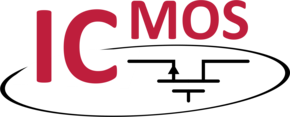UNLOOC aims to develop groundbreaking Organ-on-Chips (OOC) technologies to mitigate the challenges posed by use of animals in drug development and testing. Direct use of human cells is a real game changer, bridging the gender gap and allowing personalized medicine.
Challenge
Before drugs can proceed to clinical trials on human subjects, animal models have traditionally been used to validate the effectiveness, toxicity and pharmacokinetics of the drug. However, use of animal models comes with many potential challenges, such as lower predictability to humans, high failure rates in clinical trials, excessive costs in drug development and risk of death caused by unwanted side effects in approved drugs.
Project
The project aims to demonstrate through its five novel use cases how the groundbreaking methods using Organ-on-a-Chip (OOC) technology enable the development of more effective treatments, leaving animal subjects out of the equation. The OOC technology to be developed in the UNLOOC project will not only enable controlled drug testing, but also the modelling of disease pathophysiology.
If you are interested in circuit design then please contact the responsible employee (Christian Ziegler).
